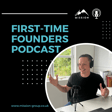
How to identify and strengthen weakness in a Finance Function
Julie Wilkinson is an accountant on a mission to save the world from failed acquisitions. Her firm, Wilkinson Accounting Solutions, works on business acquisitions between £1m and £20m turnover and also actively acquires other accounting firms to scale its own operations.
In this episode of the First-time Founders Podcast, Julie gives Rob an ‘idiots guide’ to what a good small business finance function should look like and discusses the perils for exiting (and acquiring) entrepreneurs who don’t build adequate strength in this area.
Interested viewers can reach Julie via https://www.linkedin.com/in/juliewilkinson-accounting/ or julie.wilkinson@wilkinsonaccountingsolutions.co.uk (also check out her 'Understanding Accounting Lingo' course here: https://wilkinsonaccountingsolutions.co.uk/masterclass/understanding-accounting-lingo/) and Rob (https://www.linkedin.com/in/robertliddiard/) at Rob@mission-group.co.uk (or to book some free time with Rob, visit https://www.eosworldwide.com/rob-liddiard). Alternatively, if you’d prefer Rob to send you a free copy of Traction (the book by Gino Wickman which explains The Entrepreneurial Operating System) just complete the form here: https://www.eosworldwide.com/traction-giveaway?implementer_email=rob.liddiard@eosworldwide.com




